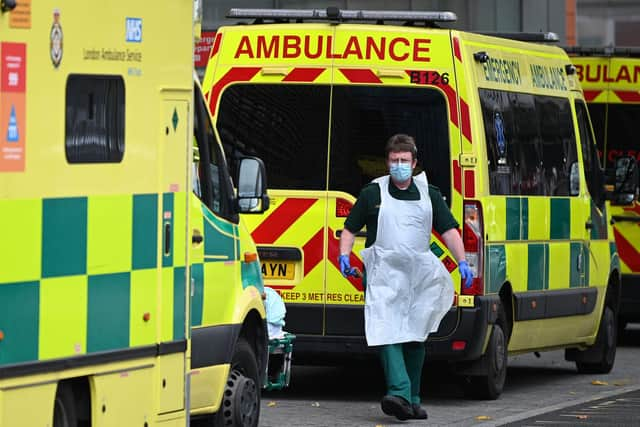Bedfordshire's ambulance service makes ‘marked improvement’ according to Care Quality Commission report
and live on Freeview channel 276
The East of England Ambulance Service Trust which covers Bedfordshire has made ‘marked improvements’ on significant and long-standing cultural issues which had placed it in special measures just under two years ago.
The CQC inspected the Trust in earlier this year and has published its report this week.
Advertisement
Advertisement
The inspection found that staff are working effectively as a team to provide safe, kind and compassionate care to patients.


The Trust was making it easier for people to give feedback and complaints were treated seriously.
EEAST chief executive officer Tom Abell said that the Trust has taken the feedback seriously and will continue to work hard to address issues raised.
Mr Abbell said: “I am pleased the CQC has recognised that hard work of our people under significant pressure – and that we have made marked improvements on what we have needed to address from previous inspections, which highlighted significant issues with our culture that left staff feeling unable to raise concerns.
Advertisement
Advertisement
He added: “We have focussed on providing our people with a safe and supportive workplace and there are early indicators this is beginning to have a positive impact – making significant progress to tackle bullying and harassment.
Mr Abell continued: “However, we recognise that this is only the first step in our work to improve our culture and our service and we have a 3-5 year plan in place to fully address all of the challenges we face.
“The CQC rightly identified several areas for improvement that we are continuing to address, including improving staff morale and access to training, the impact of the Trust being on heightened surge levels for extended periods of time, and the challenges of staffing our ambulance operations centres.”
EEAST chair Nicola Scrivings said:“We have made some positive early steps to improve the culture of the Trust, but we recognise there is much more still to be done. We have strengthened our leadership team and have a stable Board in place, which will progress the improvement and change needed across the Trust in future.”
The Trust has brought 45 measures to better support staff, including an increase in mental health provision, ‘welfare wagons’ to support staff at hospitals and access to physiotherapy.

